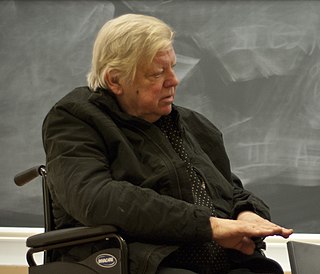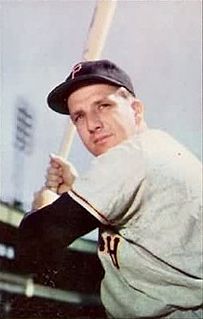A Quote by Barbara Kruger
I think that every so-called history book and film biography should be prefaced by the statement that what follows is the author's rendition of events and circumstances.
Related Quotes
Reading a book should be a conversation between you and the author. Presumably he knows more about the subject than you do; if not, you probably should not be bothering with his book. But understanding is a two-way operation; the learner has to question himself and question the teacher, once he understands what the teacher is saying. Marking a book is literally an expression of your differences or your agreements with the author. It is the highest respect you can pay him.
No one really knows the value of book tours. Whether or not they're good ideas, or if they improve book sales. I happen to think the author is the last person you'd want to talk to about a book. They hate it by that point; they've already moved on to a new lover. Besides, the author never knows what the book is about anyway.
[Judge and Jury] is outstanding. I have
learned more about the history of
baseball, true history, than from
anything I have ever read or heard
about. [It's] research and documentation
clarifies so many of the personalities
and events that took place before 'my
time' in the game. Jacques Barzun's
quote: 'Whoever would know the heart
and mind of America had better learn
baseball' should be supplanted by [this]
biography of Landis.
It is important to insist on the historical truthfulness of the narrative of the fall of Adam and Eve. Just as the account of the creation of Adam and Eve is tied in with the rest of the historical narrative in the book of Genesis, so also this account of the fall of man, which follows the history of man's creation, is presented by the author as straightforward, narrative history
I get letters from two kinds of readers. History buffs, who love to read history and biography for fun, and then kids who want to be writers but who rarely come out and say so in their letters. You can tell by the questions they ask - How did you get your ?rst book published? How long do you spend on a book? So I guess those are the readers that I'm writing for - kids who enjoy that kind of book, because they're interested in history, in other people's lives, in what has happened in the world. I believe that they're the ones who are going to be the movers and shakers.
In historic events, the so-called great men are labels giving names to events, and like labels they have but the smallest connection with the event itself. Every act of theirs, which appears to them an act of their own will, is in an historical sense involuntary and is related to the whole course of history and predestined from eternity.








































